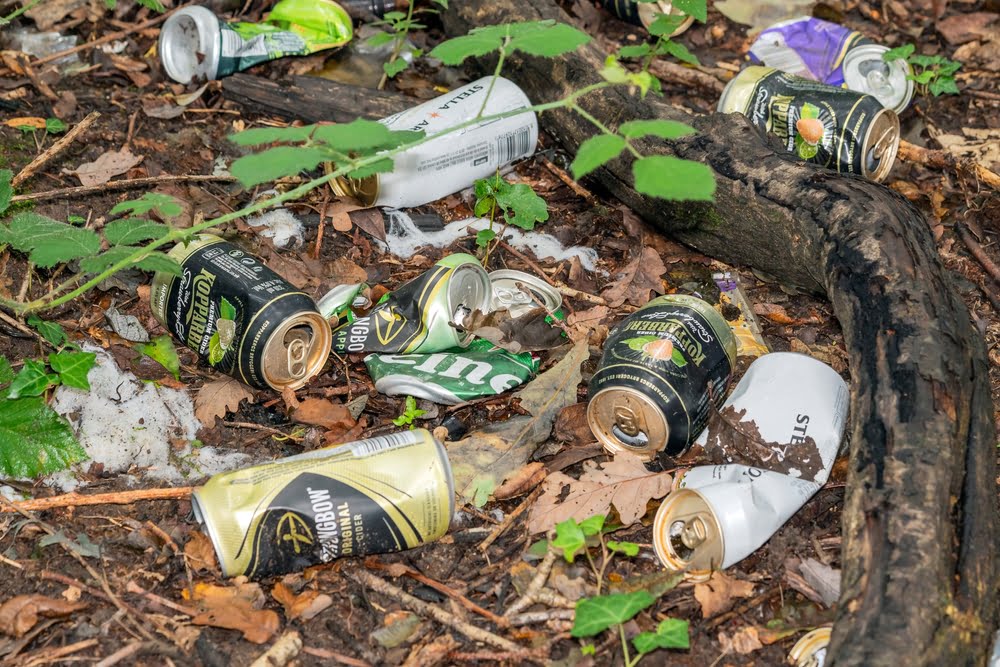Litter on land and in water has negative consequences for quality of life and the environment.
It's unbelievable what people leave behind on the roadsides. Tin cans, lots of paper tissues, but also coffee cups, cookie packaging, candy and chip bags, cigarette butts and plastic. Much to the chagrin of many, we see large mountains of litter on the roadsides on the entrances and exits. That may come to an end as far as cans are concerned, because ILT will enforce a deposit from 1 January 2023. Every can that you throw through the window from then on will cost you money. Much waste never disappears from the environment. It breaks down into very small pieces, but never decays.
As the manager of the national roads, Rijkswaterstaat wants to keep its own areas such as verges and service areas clean. Among other things, by combating litter. The Human Environment and Transport Inspectorate imposes an intention to impose a penalty (vLOD) on the Waste Fund (AV) and 16 manufacturers and importers, including supermarkets and tin producers.
The ILT is responding to the message from the AV that they will not levy a deposit on cans from 1 January 2023, while the new legislation and obligation will then take effect on levying this deposit. On June 17, the Packaging Waste Fund (AV) announced on behalf of the packaging industry that they cannot meet the legally established date of December 31, 2022 to introduce a deposit system for cans. State Secretary Heijnen (IenW) has in a letter to Parliament let us know that the legally established implementation date for the deposit system for cans on 31 December 2022 remains in place.
enforcement
The ILT will enforce, because the Inspectorate wants to ensure that the new law is complied with. The business community has already indicated that it will not comply with this, which is why the ILT imposes the preventive burden. The total amount of penalty payments for the 17 parties involved is more than € 28 million. If the violation is still committed after the maximum penalty amount has been reached, the ILT will impose a new penalty.

A deposit on cans will hopefully make a good contribution. With the increasing crowds in nature reserves, foresters also see the amount of litter increasing. This not only disfigures the landscape, but can also cause a lot of damage to nature. For example, it can contaminate the soil and animals eat it or get entangled in it.
Cleaning up zRijkswaterstaat outsources yard waste along roads and on roadsides, as well as the cleaning and cleaning of rubbish bins in parking lots to contractors. It has been agreed with them that 'disruptive litter should not occur'.



